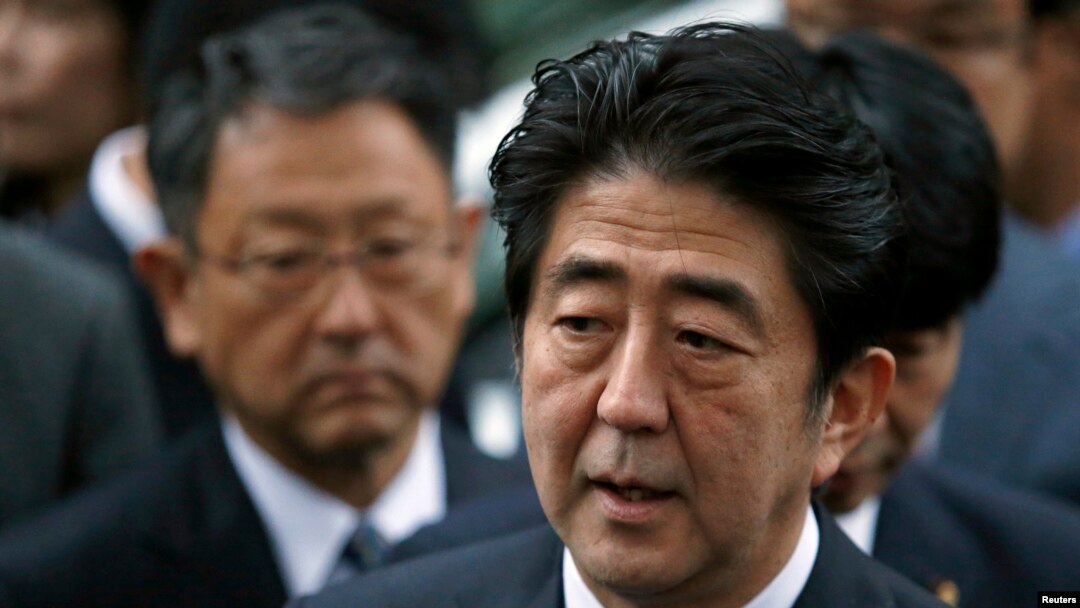TOKYO —
Japanese Prime Minister Shinzo Abe offered an olive branch to South Korean President Park Geun-hye on February 6, calling for a summit meeting to mend ties that have frayed over a territorial spat and disagreements about Japan's wartime past.
Park has refused to meet Abe since she took office last year, saying Japan must atone more sincerely for the sufferings of women, mostly Asian and many Korean, forced to work in Japanese wartime military brothels during World War II.
During a parliamentary debate, a lawmaker from the New Komeito party, the coalition partner of the ruling Liberal Democratic Party (LDP), called on Abe to improve ties with South Korea, calling it “a matter of urgency.”
“We have to work out how to improve Japan-South Korea relations as a matter of urgency. I believe now is the time to act,” said Yuichiro Uozumi, a member of house of councilors for the New Komeito Party.
“Japan and South Korea have issues to resolve, but I believe it is precisely because we have problems that we should hold a heart-to-heart meeting between heads of state, without setting any predetermined rules,” Abe said.
“The door is open for dialogue, but we are not just waiting inside it. We will actively step out and make every effort to realize exchanges at a political level and a meeting of heads of state,” he added.
In December, Abe added further tension to relations when he visited Tokyo's Yasukuni shrine, where Japanese leaders convicted as war criminals by an Allied tribunal after World War Two are honored alongside those who died in battle.
Japan and South Korea are also locked in a dispute over islands known as Takeshima in Japan and Dokdo in South Korea.
Park has refused to meet Abe since she took office last year, saying Japan must atone more sincerely for the sufferings of women, mostly Asian and many Korean, forced to work in Japanese wartime military brothels during World War II.
During a parliamentary debate, a lawmaker from the New Komeito party, the coalition partner of the ruling Liberal Democratic Party (LDP), called on Abe to improve ties with South Korea, calling it “a matter of urgency.”
“We have to work out how to improve Japan-South Korea relations as a matter of urgency. I believe now is the time to act,” said Yuichiro Uozumi, a member of house of councilors for the New Komeito Party.
“Japan and South Korea have issues to resolve, but I believe it is precisely because we have problems that we should hold a heart-to-heart meeting between heads of state, without setting any predetermined rules,” Abe said.
“The door is open for dialogue, but we are not just waiting inside it. We will actively step out and make every effort to realize exchanges at a political level and a meeting of heads of state,” he added.
In December, Abe added further tension to relations when he visited Tokyo's Yasukuni shrine, where Japanese leaders convicted as war criminals by an Allied tribunal after World War Two are honored alongside those who died in battle.
Japan and South Korea are also locked in a dispute over islands known as Takeshima in Japan and Dokdo in South Korea.



